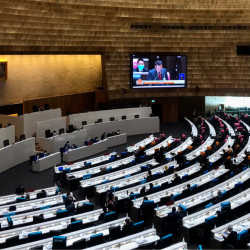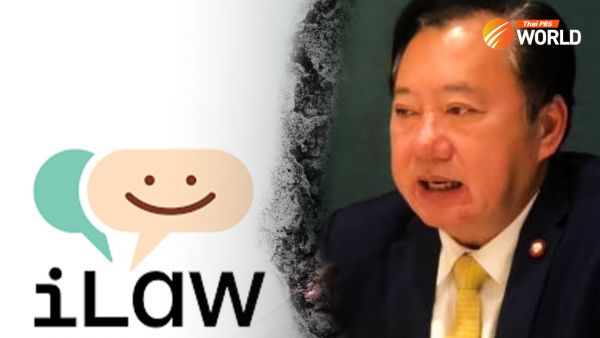Move Forward-led govt’s policy on legalized cannabis – it’s complicated

The new coalition government being formed by the Move Forward Party is set to reshape – if not reverse – Thailand legalization of marijuana.
As soon as the new government takes office, it will relist marijuana as a narcotic, according to Dr Wayo Assawarungruang, who sits on Move Forward’s public-health working panel.
“The move will enable the strict control of marijuana affairs,” said Wayo, who was elected as a Move Forward party-list MP.
“But we will of course also issue regulations to temporarily protect the interests of marijuana-related businesses that have sprung into operation legally. We will give them time to adjust to the new landscape.”
Backpedalling?
Cannabis had been banned in Thailand for decades under the 1961 Single Convention on Narcotic Drugs, before Bhumjaithai Party made legalization of the herb its core election policy four years ago.
Following the 2019 national vote, Bhumjaithai took control of the Public Health Ministry and began pushing for marijuana to be removed from the narcotics list. By the end of 2019, marijuana had been legalized for medical purposes.
Over the next three years, legal steps materialized paving the way for general use of marijuana. By late 2021, cannabis was no longer listed as a controlled substance under the Narcotics Code. The Public Health Ministry also issued new regulations to ensure that pot became fully legal, beyond just medical uses.
As a consequence, cannabis has become widely available in Thailand over the past year. In the absence of regulations governing its use, ganja shops and street stalls have mushroomed in cities, with some grocery stores now even stocking the herb. Cannabis is also being added to various commercial products including foods, beverages, and cosmetics.
Chuwit Kamolvisit, a former massage parlor tycoon turned prominent whistleblower, has complained that more than 100,000 marijuana shops have sought permission to operate from authorities. In the absence of zoning regulations, these shops are reportedly located near schools.
While hopes were high for Thailand’s marijuana industry in 2022, the tide will likely turn during the tenure of the new government.
Marijuana market to shrink by 70%
Wayo said that once marijuana is put back on the narcotics list, about 70% of marijuana stalls and shops will be wiped out. Expected to be gone right away are online cannabis shops and roadside stalls on Khaosan Road. He said the businesses are operating today only because legal loopholes exist. Since removing marijuana from the narcotics list, Thailand has yet to pass a specific law controlling its use.
“We will pass laws to govern the 30% of shops that will remain,” Wayo said.
The move to relist marijuana as a narcotic and pass laws to govern its use is incorporated in the memorandum of understanding (MoU) on governance signed by Move Forward and its coalition partners.
Move Forward’s leader Pita Limjaroenrat has repeatedly said that marijuana must be controlled.
What’s next?
Wayo said his party intended to clear the mess caused by decriminalization and the free trade in marijuana, and hoped all sides would cooperate.
Move Forward’s deputy leader Sirikanya Tansakul echoed Wayo in emphasizing that legitimate ganja businesses would enjoy legal protection but the party has not yet revealed the framework and timeline for its marijuana policy.
“I can tell you that people who need to use marijuana will still be able to use it,” Wayo said. “We have already listened to opinions of all sides.”
Asked whether marijuana shops would vanish from Thai streets, Wayo said his party would allow the demand-and-supply mechanism to operate, but with regulations and controls in place.
He said regulations would be passed to protect people who did not use marijuana from adverse impacts of the herb’s use.
“This is our principle,” he said.
Will recreational marijuana disappear?
Wayo, however, did not rule out allowing recreational marijuana to exist under the new government, explaining that his team had not yet considered the issue fully.
So far, he has only underlined the rights of individuals to use marijuana, indicating that he and the coalition may not be opposed in principle to recreational marijuana.
Wayo has pointed out that liquor and cigarettes remain legal despite having no claimed health benefits, unlike marijuana.
Dr Smith Srisont, a member of the Medical Council and president of the Forensic Physician Association of Thailand, said if the new government wanted to allow recreational marijuana, it should call a public referendum on the issue.
“Since recreational marijuana will have huge impacts, people should be allowed to have their say,” he said.
He pointed out that in the Netherlands, recreational use of marijuana is permitted but only in certain zones and with limits to prevent excessive consumption.
Smith disagrees with Wayo’s comparison between marijuana and liquor or cigarettes, saying they are different things.
“The World Health Organization’s stance is that marijuana is still a narcotic. Cigarettes and liquor are not,” Smith said.
Support for recriminalizing marijuana
Smith is among many prominent figures who support recriminalization of marijuana, pointing to the potential dangers of usage without proper controls. He pointed out that while drunk driving was now a serious legal offence, drivers under the influence of pot are not liable to legal punishment under current rules.
Weerawit Kreasombat, president of Pathong Entertainment Entrepreneurs club, also agrees with the move to criminalize marijuana, citing the visible consequences of freely available ganja over the past year.
“You see youngsters smoking pot in public places,” he said.
And the absence of clear regulations means some businesses can bribe authorities so their marijuana-related operations flow smoothly.
Cannabis lovers speak out
Preeda Chaiyo, who operates a ganja café in Pattaya, said cannabis is a new economic crop whose benefits outweighed its adverse impacts. He said he would not oppose the move to relist marijuana as a narcotic, provided his business could continue under the new rules.
“The Move Forward Party should realize how much marijuana helps spur tourism in tourist cities like Pattaya, Phuket, Chiang Mai, and Bangkok,” Preeda said.
Prasitchai Nunuan, who leads a pro-cannabis network, said Move Forward and its potential coalition partners including the Pheu Thai Party should also realize that cash-strapped patients struggling even with the help of modern medicine needed marijuana to alleviate their conditions.
“If the Move Forward Party can back the progressive liquor bill, it should back a progressive marijuana bill too,” he said.
By Thai PBS World






